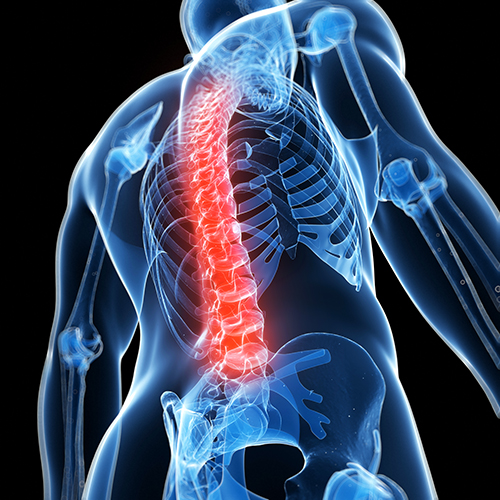
Disorders of the spine (e.g., herniated nucleus pulposus, spinal arachnoiditis, spinal stenosis, osteoarthritis, degenerative disc disease, facet arthritis, vertebral fracture), resulting in compromise of a nerve root (including the cauda equina) or the spinal cord.
How does Acquiescence Ruling (AR) 15-1(4) apply to Disorders of the Spine?
The Social Security Administration in September 2015, released Acquiescence Ruling (AR) 15-1(4). It is a ruling that will only apply to claims within the Fourth Circuit Court in the states of Maryland, North Carolina, South Carolina, Virginia, and West Virginia. In these states, a claim that qualifies for a listing 1.04 analysis (for disorders of the spine) will now be reviewed using a more contextual inquiry to be considered by the Court of Appeals.
The current SSA policy requires that for a disorder of the spine to qualify a claimant must establish the simultaneous presence of all the medical criteria necessary in the listing. Once the level of severity is determined, the candidate must then show that the degree of severity continued, or is expected to continue, for a continuous period of at least 12 months.
Adjudicators will now consider cases that all of the qualifying medical criteria appear simultaneously or in particular proximity. Instead, adjudicators will utilize what the court of appeals describes as a free-form situational inquiry. This will now make the 12 months the relevant measure for the assessment of the claimant’s duration of disability
What is the purpose of an Acquiescence Ruling (AR)?
When the Social Security Administration (SSA) loses a case at the Circuit Court level, rather than appeal the unfavorable decision, the agency can then choose to issue an Acquiescence Ruling (AR.) Its purpose is to explain how the Court’s ruling differs from SSA’s interpretation of the issue.
ARs are only binding within the state’s Circuit that issued the decision. While only legally binding within the particular states, AR’s are useful in that they can now be used as a compelling defense for any client, anywhere in the country, whose claim is relevant to the ruling.
What Does this Mean for Claimants?
- Earlier cases that were denied can now be reviewed and represented in the hopes the ruling could change the prior decision.
- Now a claimant is required to show that each of the symptoms are present and that the applicant has suffered or can be expected to suffer from nerve root compression continuously for at least 12 months.
If you have any questions regarding your spinal injury as it relates to Acquiescence Ruling (AR) 15-1(4), Disability Support Services can help. Our staff will be able to review your case, even if it has been denied. Contact DSS today to schedule a consultation.



